17 start with P start with P
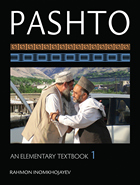
eTextbooks are now available to purchase or rent through VitalSource.com! Please visit VitalSource for more information on pricing and availability.
Pashto, designated a critical language by the US Department of Defense, is one of two official languages of Afghanistan and is also spoken in parts of Pakistan. Volume 1 of Pashto: An Elementary Textbook is designed to cover one semester of beginning-level language instruction; together, Volumes 1 and 2 of Pashto cover one year of instruction. The textbook provides learners and instructors with a wide selection of task-oriented, communicative language materials to facilitate the development of language learning. It features a functional approach to grammar, an emphasis on integrated skills development, and the use of authentic materials.
The activities provided in the textbook will help learners to develop strong skills in speaking, listening, reading, and writing. In addition to the cultural background embedded in the video materials, the textbook contains cultural notes that improve competency.
Volumes 1 and 2 of Pashto: An Elementary Textbook each include:• Authentic audio and video materials to accompany the text, available on the Press website• Extensive Pashto–English and English–Pashto glossaries• Material for teaching the Arabic-based Pashto alphabet • Color illustrations and photographs throughout
Topics coveredVolume 1 (first semester): The Pashto alphabet, writing, reading, pronunciation, greetings and introductions, university life, daily activities, in the city, and family
Volume 2 (second semester): Seasons, weather, holidays, health, food, sport, and shopping
For Instructors: Exam copies of the textbook are available free of charge to instructors and can be ordered on this page. To request a print sample, please use the "print" exam copy button. Instructors may request a digital sample by logging into VitalSource.com, selecting "Faculty Sampling" in the upper right-hand corner, and selecting the desired product.

Volume 1 includes essays on Spinoza, Descartes, Bradley, Collingwood, Russell, Moore, and Popper, as well as two previously unpublished papers on the history of philosophy as a discipline, and on Ryle and Wittgenstein's nature of philosophy. Linked by Donagan's commitment to the central importance of history for philosophy and his interest in problems of historical understanding, these essays represent the remarkable scope of Donagan's thought.
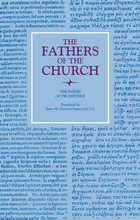

Political and Social Writings: Volume 1, 1946–1955 was first published in 1988. Minnesota Archive Editions uses digital technology to make long-unavailable books once again accessible, and are published unaltered from the original University of Minnesota Press editions.
A series of writings by the man who inspired the students of the Workers' Rebellion in May of 1968.
"Given the rapid pace of change in the Soviet Union and Eastern Europe, and the radical nature of these transformations, the work of Cornelius Castoriadis, a consistent and radical critic of Soviet Marxism, gains renewed significance. . . . these volumes are instructive because they enable us to trace his rigorous engagement with the project of socialist construction from his break with Trotskyism to his final breach with Marxism . . . and would be read with profit by all those seeking to comprehend the historical originality of events in the USSR and Eastern Europe." –Contemporary Sociology
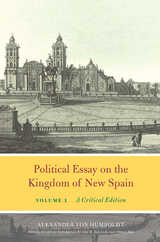
Alexander von Humboldt was the most celebrated modern chronicler of North and South America and the Caribbean, and this translation of his essay on New Spain—the first modern regional economic and political geography—covers his travels across today’s Mexico in 1803–1804. The work canvases natural-scientific and cultural-scientific objects alike, combining the results of fieldwork with archival research and expert testimony.
To show how people, plants, animals, goods, and ideas moved across the globe, Humboldt wrote in a variety of styles, bending and reshaping familiar writerly conventions to keep readers attentive to new inputs. Above all, he wanted his readers to be open-minded when confronted with cultural and other differences in the Americas. Fueled by his comparative global perspective on politics, economics, and science, he used his writing to support Latin American independence and condemn slavery and other forms of colonial exploitation. It is these voluminous and innovative writings on the New World that made Humboldt the undisputed father of modern geography, early American studies, transatlantic cultural history, and environmental studies.
This two-volume critical edition—the third installment in the Alexander von Humboldt in English series—is based on the full text, including all footnotes, tables, and maps, of the second, revised French edition of Essai politique sur le royaume de de Nouvelle Espagne from 1825 to 1827, which has never been translated into English before. Extensive annotations and full-color atlases are available on the series website.

Possibility and Necessity was first published in 1987. Minnesota Archive Editions uses digital technology to make long-unavailable books once again accessible, and are published unaltered from the original University of Minnesota Press editions.
Jean Piaget was preoccupied, later in life, with the developing child's understanding of possibility—how the child becomes aware of the potentially unlimited scope of possible actions and learns to choose among them. Piaget's approach to this question took on a new openness to real-life situations, less deterministic than his earlier, ground-breaking work in cognitive development. The resulting two-volume work—his last—was published in France in 1981 and 1983 and is not available for the first time in English translation. Possibility and Necessity combines theoretical interpretation with detailed summaries of the experiments that Piaget and his colleagues used to test their hypotheses.
Piaget's intent, in Volume 1, is to explore the process whereby possibilities are formed. He chooses to understand "the possible" not as something predetermined by initial conditions; rather, in his use of the term, possibilities are constantly coming into being, and have no static characteristics—each arises from an event which has produced an opening onto it, and its actualization will in turn give rise to other openings. In perceiving that a possibility can be realized, and in acting upon it, the child creates something that did not exist before.
To observe this process, Piaget and his associates devised a series of thirteen problems appropriate for children ranging in age from four or five to eleven or twelve; they were asked to name all possible ways three dice might be arranged, for example, or a square of paper sectioned. The experimenters had two primary aims—to discover to what extent the child's capacity to see possibilities develops with age, and to determine the place in cognitive development of this capacity—does it precede or follow the advent of operational thought structures? In charting this process, Piaget discerns a growing interaction between possibility and necessity. How the child comes to understand necessity and achieves a dynamic synthesis—or equilibrium — between the possible and the necessary is discussed by Piaget and his colleagues in Volume 2, The Role of Necessity in Cognitive Development, also published by Minnesota.
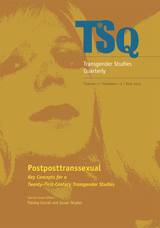
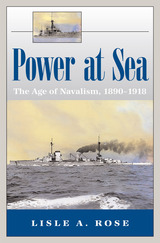

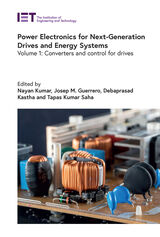


Contributors. James R. Barrett, Joshua Brown, Leon Fink, Dana Frank, John French, James Green, Julie Greene, Gregory Kealey, Kristen Hill Maher, Steve Meyer
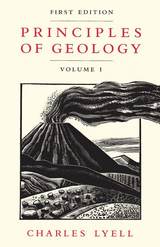
Martin J. S. Rudwick's new Introduction, summarizing the origins of the Principles, guides the reader through the structure of the entire three-volume first edition and considers the legacy of Lyell's great work.

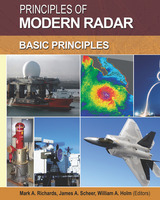
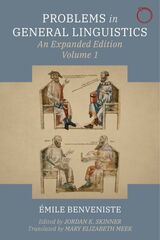
This new edition will delight linguists and philosophers already familiar with Benveniste and introduce his work to a new generation of students. Benveniste studies are going through an enthusiastic revival in Europe; after reading this book, readers elsewhere will understand why.
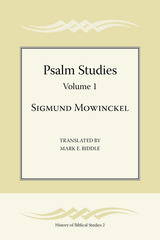
Sigmund Mowinckel is widely recognized as one of the leading forces in Psalms research during the twentieth century. Indeed, the culmination of Mowinckel’s thought and work, The Psalms in Israel’s Worship, continues to play a significant role in Psalms scholarship today. Not as well known are the seminal studies that prepared the ground for Mowinckel’s later work, the six Psalmenstudien that are translated here into English for the first time. In these studies Mowinckel explores with care and in detail such topics as: “'Awen and the Psalms of Individual Lament”; “YHWH’s Enthronement Festival and the Origin of Eschatology”; “Cultic Prophecy and Prophetic Psalms”; “The Technical Terms in the Psalm Superscriptions”; “Blessing and Curse in Israel’s Cult and Psalmody”; and “The Psalmists.” Anyone interested in Psalms study, especially the possible role of the New Year’s enthronement festival within Israel’s cult and its relation to the Psalter, will find much to consider in these classic works.
READERS
Browse our collection.
PUBLISHERS
See BiblioVault's publisher services.
STUDENT SERVICES
Files for college accessibility offices.
UChicago Accessibility Resources
home | accessibility | search | about | contact us
BiblioVault ® 2001 - 2024
The University of Chicago Press









